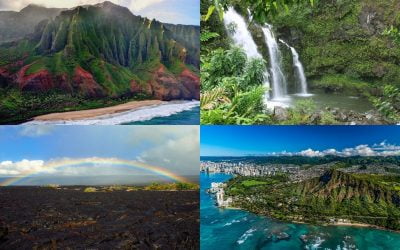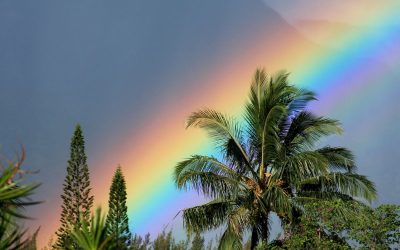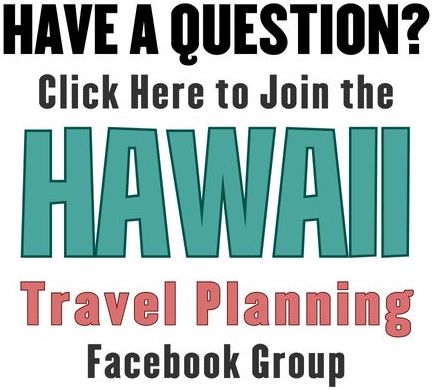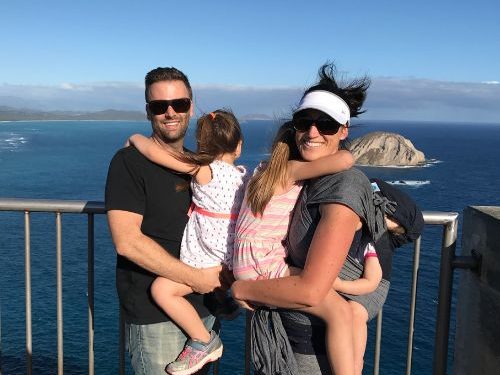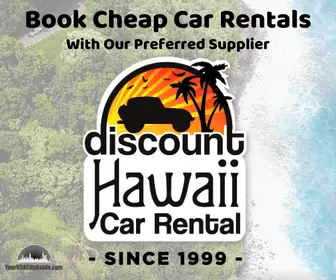Why a Certified Hawaii Destination Expert Is the Key to Stress-Free Hawaii Trip Planning
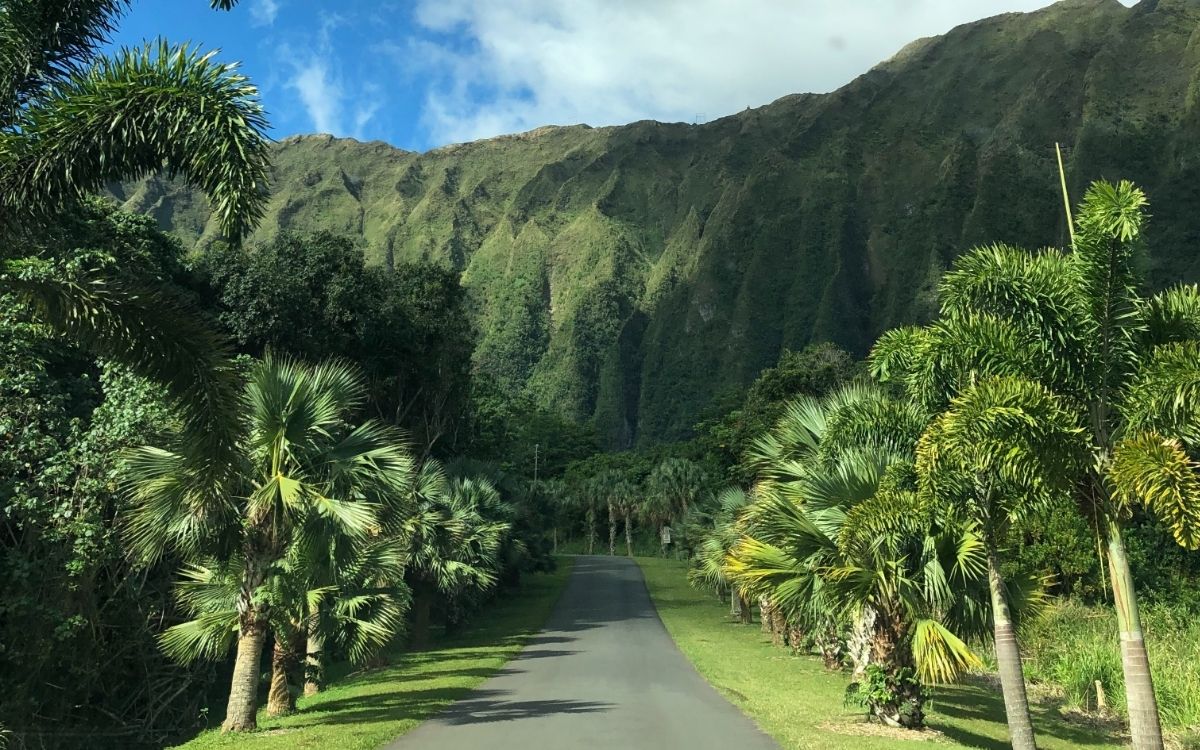
When you’re planning a Hawaii family vacation, how do you know who to trust?
There’s actually an official way to verify real Hawaii expertise – and it’s called being a Certified Hawaii Destination Expert through the Hawaii Tourism Authority. But most families don’t know this certification exists, or why it matters when you’re investing thousands of dollars in your dream vacation.
Aloha! I’m Bryan Murphy, host of the Hawaii’s Best Travel podcast, and I pursued official certification after 30+ visits to Hawaii. Here’s why that decision changed everything – and what it means for families planning their trips.
But first, what certification can’t teach you about the real Hawaii.
Why Local Connections Matter More Than Credentials
My wife and I walked into bEASTside Kitchen near Waimanalo, and honestly, I felt uncomfortable.
It was so local. The kind of place where everyone knows each other, and we clearly didn’t belong. I didn’t want to stick out, didn’t want to be “those tourists” invading a community spot.
But a friend had recommended it, so we stayed.
What started as dinner turned into an hour-long conversation with the owner about his family’s homestead land, his work supporting Native Hawaiians in the community, and the challenges of preserving culture while serving tourists.
That conversation taught me something crucial: the real Hawaii expertise doesn’t come from viral Instagram posts or a single vacation. It comes from relationships with people who call these islands home.
That story is one of the many reasons why I pursued official certification through the Hawaii Tourism Authority – to formalize my commitment to learning from Hawaii, not just visiting it.
Listen to bEASTside’s story while you read the rest of this article on why planning with a certified Hawaii destination expert is key to a stress-free Hawaii trip.
In 2024, Hawaii welcomed 9.69 million visitors who spent $20.6 billion exploring these islands.
Think about that for a moment: families investing $5,000, $10,000, even $15,000 in a vacation they’ve been planning for years.
Many of them relied on advice from self-proclaimed “experts” who couldn’t tell you the difference between Maui Nui and Mauna Kea. Bloggers who visited once. Instagram influencers who stayed in Waikiki for three days. TikTokers who’ve never planned a trip for actual families with kids, grandparents, and real budgets.
When you’re spending that kind of money, doesn’t it make sense to get advice from someone who’s actually proven their expertise?
Here’s what being a Certified Hawaii Destination Expert actually means – and why it should matter when you’re planning your family’s dream Hawaiian vacation.
What a Certified Hawaii Destination Expert Actually Does for Your Family
Here’s what is dangerous about about Hawaii travel advice online:
Anyone can call themselves an expert. One viral TikTok from Waikiki, and suddenly someone’s telling families how to spend $10,000 on their dream vacation.
There’s zero regulation. No standards. No accountability.
I’ve watched families make expensive mistakes based on advice from bloggers who visited once, stayed in Waikiki, and never left the resort area.
So why did I pursue certification if the industry has no standards?
Because my listeners deserve better. When 600,000+ people download your podcast and trust your advice for their family vacations, you have a responsibility to get it right.
The Hawaii Tourism Authority certification validates comprehensive knowledge across all islands through rigorous closed-book exams covering:
- Hawaiian history and cultural protocols
- Geography and microclimates
- Sustainable tourism principles
- Current regulations and reservation systems
- Seasonal ocean conditions
- Cultural significance of sacred sites
I completed all six island specialist certifications (Oahu, Maui, Kauai, Big Island, Lanai, Molokai) plus the foundation level.
What sets my expertise apart from most Hawaii travel experts is my active membership with the Hawaii Visitors and Convention Bureau.
For your family, that means you get Hawaii advice that’s certified, current, and actually doable with kids and grandparents in tow.
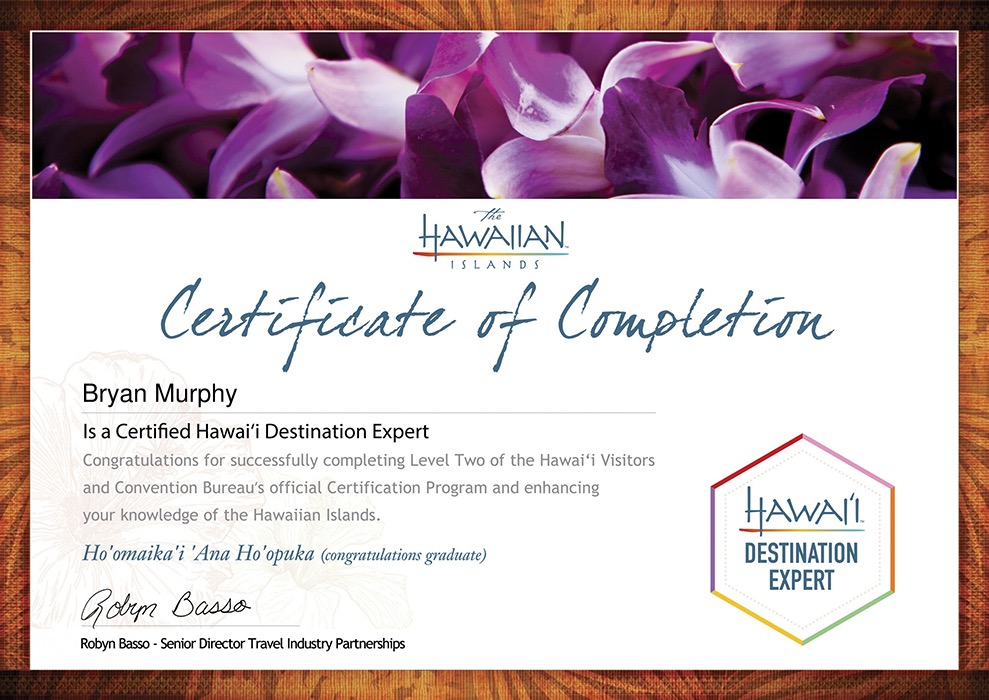

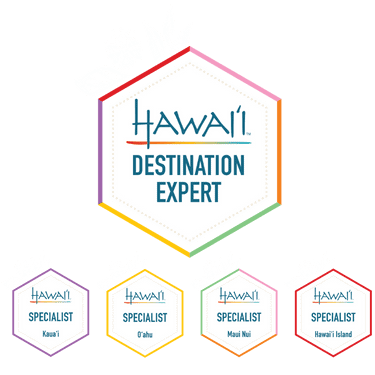
Why I Got Certified as a Hawaii Travel Expert (Even After 20+ Trips, now over 30 trips to Hawaii)
I thought certification would be easy. I’d been to Hawaii 20 times. I’d interviewed Hawaiian cultural practitioners on my podcast. I’d planned trips for my own large family.
I was wrong.
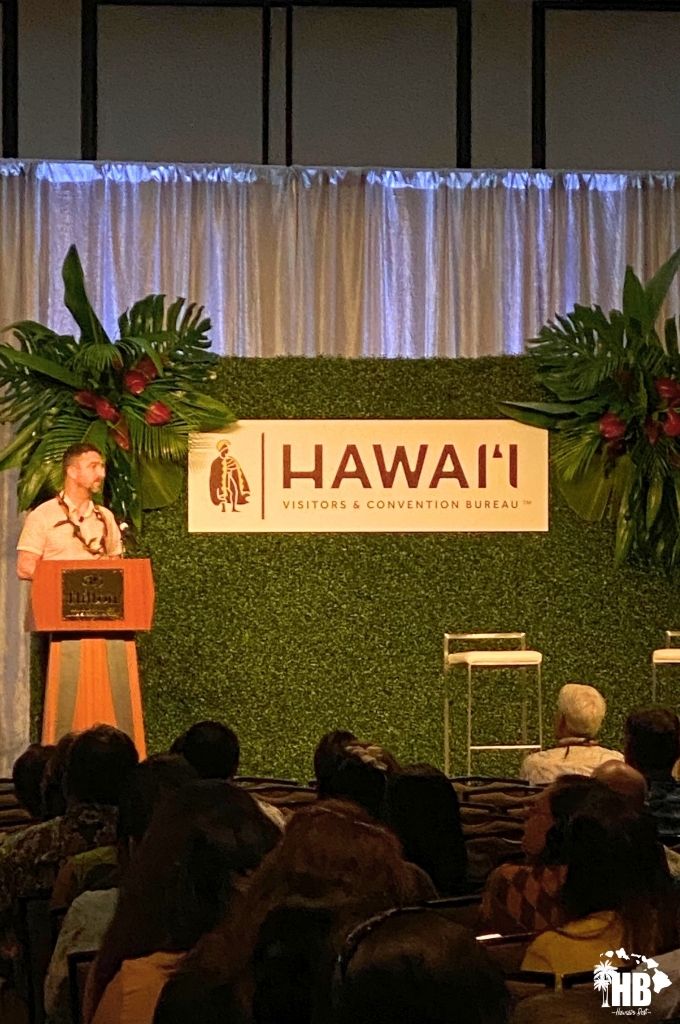
Attending the HVCB’s annual meeting
The Mālama Hawaii Principle
The certification program emphasizes Malama Hawaii – caring for and protecting Hawaii.
This isn’t just “don’t litter” environmentalism. It’s about:
- Understanding regenerative tourism (giving back more than you take)
- Supporting Native Hawaiian businesses and cultural practitioners
- Respecting sacred sites and cultural protocols
- Minimizing impact on fragile ecosystems
Ocean Safety Knowledge I Didn’t Have
I thought I understood Hawaii’s beaches after three decades of visits.
The certification showed me I was missing critical nuances about seasonal ocean conditions – knowledge that directly affects which beaches are safe for families with young children during different months.
This isn’t information you find in travel blogs. It’s the kind of expertise that keeps families safe.
Staying Current on Changes in Hawaii
Hawaii changes constantly. After the devastating August 2023 Lahaina wildfires, I received updates directly from Maui tourism officials about reopening timelines and appropriate ways to support the community – information that took weeks to reach general travel blogs.
Through my HVCB (Hawaii Visitors and Convention Bureau) membership, I get access to tourism authority updates before they’re publicly announced.
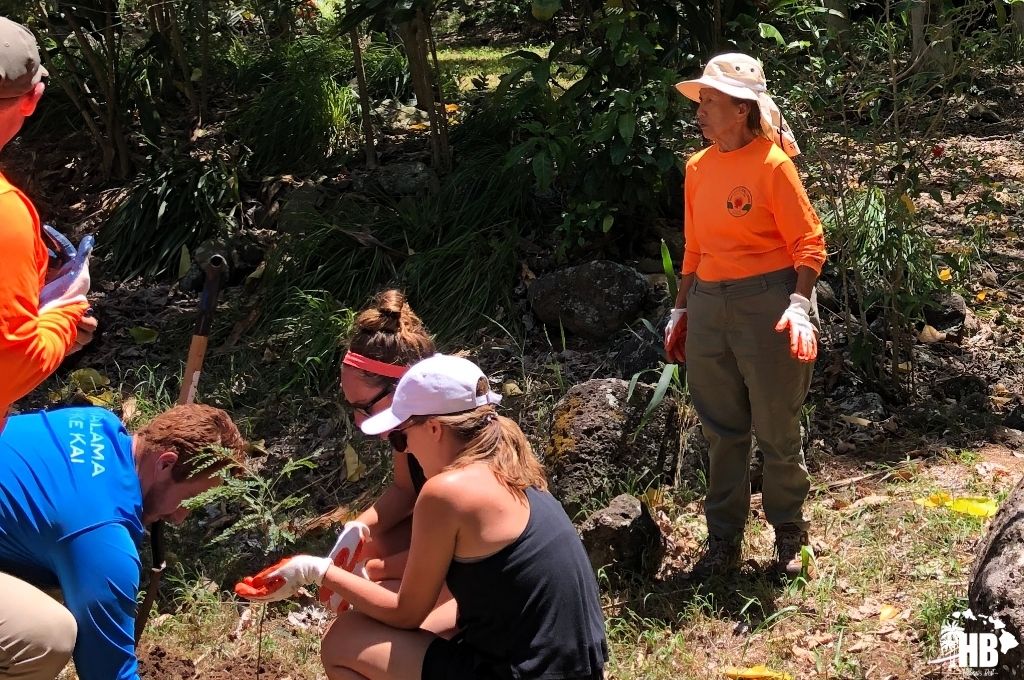
Aunty Puanani at Maui Cultural Lands watching over us to keep it pono.
Why I’m a Certified Hawaii Destination Expert but Not a Travel Agent
Most Certified Hawaii Destination Experts work for or with travel agents. They earn commissions on hotels, tours, and packages.
I don’t work that way.
I’m not saying travel agents are bad – many are professionals. But commission structures create specific incentives.
When someone earns money from booking specific hotels or tours, you have to wonder: are they recommending what’s best for my family, or what pays them best?
My business model is different:
I don’t book Hawaii travel for you. I don’t arrange hotels, tours, or packages. I don’t earn commissions from specific properties or operators.
I offer consultation services where families pay me directly for unbiased advice. My income comes from helping you plan, not from what you book.
Full transparency: Like most travel blogs, I do earn a small affiliate commission if you book accommodations through links on my site. But here’s the key difference: I don’t know which hotel you’ll choose when I write my recommendations. I’m not incentivized to push the Hilton over the Marriott, or the expensive resort over the budget option.
If an expensive activity isn’t worth it, I’ll tell you.
If the cheaper option is actually better, I’ll recommend it.
If you should skip something entirely and spend that time at the beach, I’ll say that too.
My only real incentive is giving you advice that works – because my business depends on families trusting my recommendations and coming back for future trips.
How I Actually Help Families (Beyond Generic Hawaii Travel Advice)
Multi-Generational Trip Planning
According to 2024 Hawaii tourism data, 42% of family travel to Hawaii involves multiple generations.
These trips are complex:
- Balancing activities for toddlers and grandparents
- Finding accommodations that give everyone space
- Planning realistic pacing (not exhausting anyone)
- Coordinating nap times with snorkeling trips
I specialize in this because I plan these trips for my own large family and others. I know what works and what doesn’t.
Island Selection That Actually Matches Your Family
Not all Hawaiian islands offer the same experiences. Through my certification covering all six major islands and 30+ visits, I understand:
- Which islands have the best beaches for young children
- Where teenagers will actually stay engaged
- Which destinations work for mobility-limited grandparents
- How to match island characteristics to family interests
Not sure which island fits your family? Take my free island selection quiz – it’s based on actual family needs, not generic tourism marketing
And if you’re traveling with kids, try the Best Hawaiian Island for Kids quiz
Cultural Experiences (Not Tourist Traps)
Through my podcast, I’ve built relationships with Hawaiian cultural practitioners who share authentic experiences.
These aren’t the commercial luaus with fire dancers and mai tais.
I can guide you to:
- Educational experiences led by Native Hawaiians preserving traditions
- Cultural sites with proper protocols and timing
- Local businesses genuinely connected to Hawaiian culture
That conversation at bEASTside Kitchen? That’s the kind of authentic connection I want families to experience.
Restaurant Recommendations Where Locals Actually Eat
I’ve found the family-owned restaurants serving traditional Hawaiian food, the best poke spots where locals actually eat, and the food trucks that offer authentic experiences.
Places like bEASTside Kitchen – where you might feel a little uncomfortable walking in, but where you’ll have the most memorable meals and conversations of your trip.
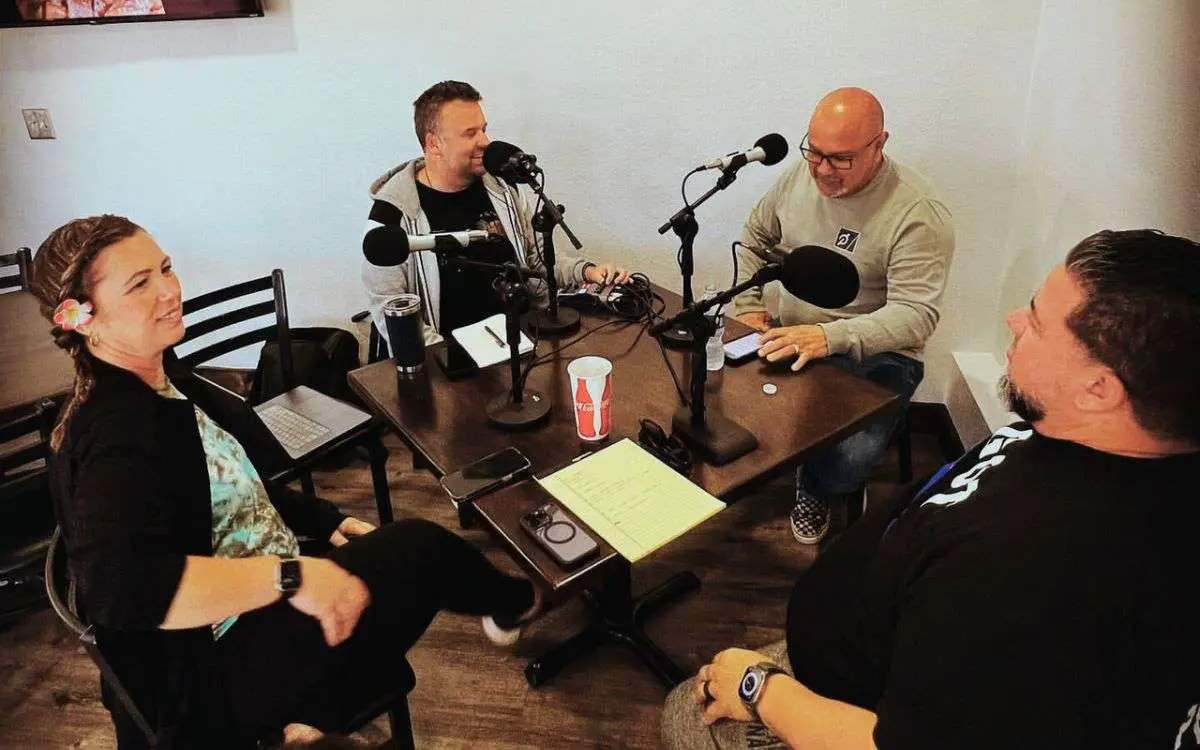
Recording an episode with the North Shore Plate Lunch ‘ohana.
The Three Mistakes First-Time Hawaii Visitors Make (And How to Avoid Them)
1. Overscheduling = Stress, Not Memories
Families try cramming too much into each day. They spend more time rushing between activities than actually experiencing Hawaii.
The fix: Pick one island (maybe two if you’re staying 10+ days). Build in downtime. Give yourself time to talk with locals, not just photograph them.
2. Treating Hawaii Like a Theme Park
Hawaii isn’t Disneyland with beaches. It has deep Native Hawaiian culture going back over a thousand years.
The fix: Do research before you go. Visit cultural sites with respect. Support local businesses. Attend educational experiences focused on preserving traditions, not entertaining tourists.
3. Following Outdated Advice
Hawaii changes constantly. Reservation systems get implemented. Regulations shift. Popular spots get overcrowded.
The fix: Use current sources. Ask when advice was last updated. Verify information through official channels. That’s why I’m here!
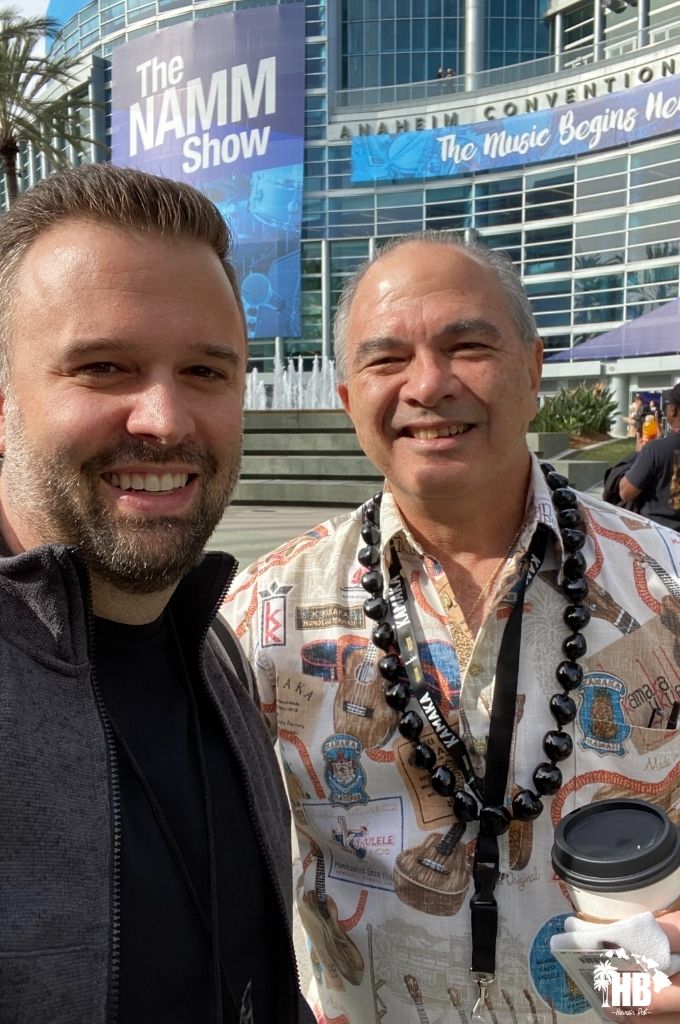
Talking story with Kamaka Ukulele about the history of the ukulele and its cultural meaning
Want to hear directly from Hawaiian cultural practitioners, local business owners, and tourism experts? Listen to the Hawaii’s Best Travel podcast where I share these conversations with over 600,000 listeners.
How to Verify Real Hawaii Expertise
As someone who pursued official certification, I want to help you identify legitimate sources:
Questions to Ask:
- Are you certified through the Hawaii Tourism Authority?
- How many times have you visited, and when was your last trip?
- Do you have relationships with Hawaiian cultural practitioners?
- How do you stay current on changes?
- Are you a travel agent, or do you work with an agent? (Not disqualifying, but important to know)
Red Flags:
- Expertise claims based on a single visit
- Recommendations ignoring cultural significance
- Advice that hasn’t been updated in years
- Generic recommendations that could apply anywhere
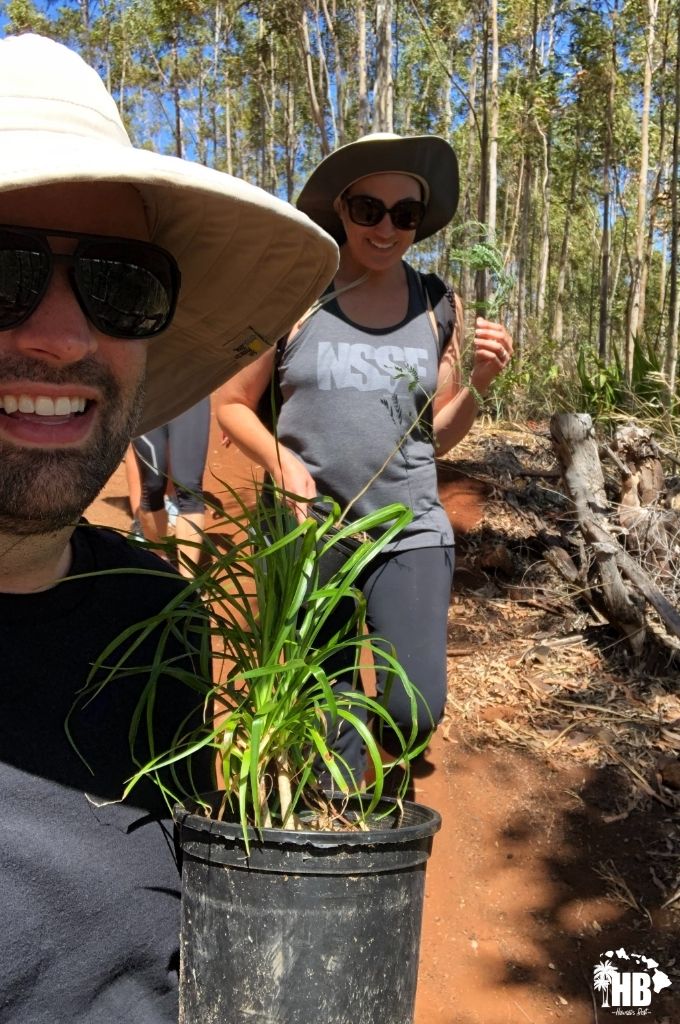
Your Next Steps to Planning a Hawaii Trip with a Hawaii Destination Expert
Planning a Hawaii vacation shouldn’t require 40+ hours of research and endless conflicting advice.
Here’s your simple path:
→ Take the free island quiz (5 minutes)
→ Listen to one podcast episode matching your island
→ Book a consultation if you want personalized help
I combine certified expertise with genuine relationships and zero commission bias.
Let me help you experience Hawaii the right way – with respect, authenticity, and realistic planning that actually works for families.
Start with the island quiz | Browse the podcast | Book a consultation
FAQ
What does Hawaii destination certification actually validate?
The Hawaii Tourism Authority certification validates comprehensive knowledge across all islands through rigorous closed-book exams covering culture, geography, activities, sustainable tourism, and current regulations.
Why does it matter that you’re not a travel agent?
Travel agents earn commissions on bookings, which can create incentives to recommend what pays best rather than what’s best for your family. As a certified expert who’s not a travel agent, my only goal is maximizing your experience.
Can you help with multi-generational trips?
Yes – I specialize in this because I plan these trips for my own large family. I understand the complexity of balancing activities for different age groups and planning realistic pacing.
How do I verify someone is actually certified?
Ask directly about their Hawaii Tourism Authority certification. Real experts will be transparent about which specific certifications they hold and how they stay current.
Ready to plan your unforgettable Hawaii vacation?
Book a consultation with me and let’s create your family’s perfect itinerary together.
RECOMMENDED POSTS
What is the Best Island to Visit in Hawaii? Take the quiz… (2025)
[dssb_sharing_buttons icon_placement="icon" columns="2" _builder_version="4.27.0" _module_preset="default" box_shadow_style_icon="preset1"...
Discover the Best Shave Ice on Kauai: Top 7 Spots You Can’t Miss
[dssb_sharing_buttons icon_placement="icon" columns="2" _builder_version="4.27.0" _module_preset="default" box_shadow_style_icon="preset1"...
27 Fun Things to Do in Kauai When It Rains
[dssb_sharing_buttons icon_placement="icon" columns="2" _builder_version="4.27.0" _module_preset="default" box_shadow_style_icon="preset1"...
Bryan Murphy, owner of Hawaii’s Best Travel, is a certified Hawaii destination expert from the Hawaii Visitors Bureau. He actively participates in the Hawaii Visitors and Convention Bureau as a member and has a strong educational background focused on local culture and sustainability. As the host of "Hawaii’s Best Travel," a top-30 US travel podcast, Bryan combines his years of experience with valuable insights. He connects with a broad online community, reaching nearly half a million people, and offers a richer, more responsible way to experience Hawaii.


